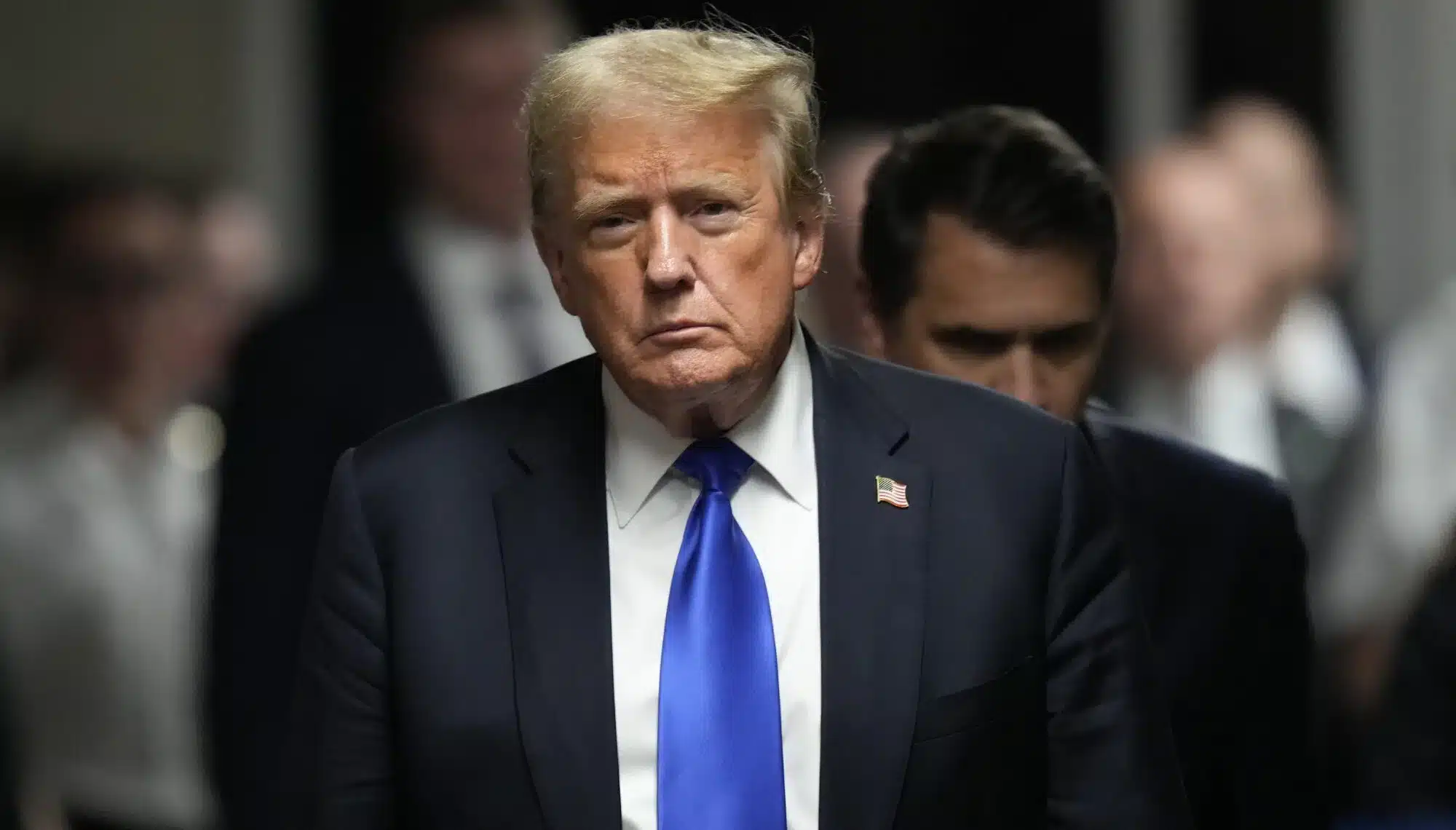This article first appeared on the Magnolia Tribune.

Former President Donald Trump walks to make comments to members of the media after a jury convicted him of felony crimes for falsifying business records in a scheme to illegally influence the 2016 election, at Manhattan Criminal Court, Thursday, May 30, 2024, in New York. (AP Photo/Seth Wenig, Pool)
- Decision will limit, and perhaps end, the federal prosecution of former President Trump for his actions after the November 2020 election.
On Monday, the U.S. Supreme Court decided one of the most watched cases of the year, Trump v. United States, finding that former President Donald Trump is entitled to immunity for some of the acts at issue in his federal prosecution.
Trump had sought a ruling that he was entitled to absolute immunity for all actions taken while he served as president. The Court declined to grant that relief, but instead, articulated three categories of presidential conduct that draw different levels of immunity.
Writing for the majority, Chief Justice John Roberts said, “The nature of Presidential power entitles a former President to absolute immunity from criminal prosecution for actions within his conclusive and preclusive constitutional authority. And he is entitled to at least presumptive immunity for prosecution for all his official acts. There is no immunity for unofficial acts.”
The ruling means Trump is entitled to absolute immunity for actions that are exclusively within his authority under the Constitution. For official acts that do not fall under his exclusive constitutional authority, he is entitled to presumptive immunity, and for unofficial acts, none.
In determining whether an act is official or unofficial, the Court referenced precedent recognizing that an “official act” extended to the “‘outer perimeter’ of the President’s official responsibilities, covering actions so long as they are “not manifestly or palpably beyond [his] authority.”
To divide official from unofficial conduct, “courts may not inquire into the President’s motives… Nor may courts deem an action unofficial merely because it allegedly violates a generally applicable law.”
Once an act is deemed official, the government must show that a criminal prosecution poses no “danger of intrusion on the authority and functions of the Executive Branch” in order to overcome presumptive immunity.
Chief Justice Roberts explained that presumptive immunity for official acts “is required to safeguard the independence and effective function of the Executive Branch, and to enable the President to carry out his constitutional duties without undue caution.”
The Court then applied its framework to the specific allegations of the criminal case brought against Trump related to his conduct after the 2020 election.
Trump’s Management of the Department of Justice
Prosecutor Jack Smith alleged in one of the four counts pending against Trump that the former President used the Department of Justice to launch criminal investigations into alleged voter fraud. He further alleges that Trump fired employees at the Department of Justice who were unwilling to go along with the investigations.
The Court found that Trump was entitled to absolute immunity on these claims, since the “Executive Branch has ‘exclusive authority and absolute discretion’ to decide which crimes to investigate and prosecute, including with respect to allegations of election crime,” and the President’s “management of the Executive Branch” includes the “unrestricted power to remove the most important of his subordinates.”
Conversations with Mike Pence
The indictment against Trump alleges that he sought to persuade former Vice President Mike Pence to use his ceremonial role presiding over the election certification to reject electoral college votes from states in which the President believed fraud had occurred.
The Court held that the conversations between Trump and Pence were entitled to presumptive immunity.
“Whenever the President and Vice President discuss their official responsibilities, they engage in official responsibilities,” the opinion stated.
The Supreme Court sent this count back to the lower court to determine whether the presumptive immunity can be rebutted by prosecutors. Prosecutors will have to demonstrate that allowing the prosecution to proceed on this claim will not “pose any dangers of intrusion on the authority and functions of the Executive Branch.”
Efforts to Select Alternative Slates of Electors
The indictment against Trump alleges that he and co-conspirators attempted to submit fraudulent slates of presidential electors to obstruct the certification of the election.
The Court declined to determine if Trump’s alleged actions with this respect to this count constituted official or unofficial actions and remanded to the lower court for a fact-intensive determination.
Communications on January 6th
The indictment against Trump contains allegations related to his communications on January 6, 2021, both through Twitter and at a rally that took place near the U.S. Capitol prior to the riot on Capitol Hill.
The Court noted “most of a president’s public communications are likely to fall comfortably within the outer perimeter of his official responsibilities. There may, however, be contexts in which the president speaks in an unofficial capacity — perhaps as a candidate for office or party leader.”
The Supreme Court remanded the case to the lower court to determine whether the communications at issue were official or unofficial, and as such, whether Trump is entitled to presumptive immunity or no immunity at all for his statements on January 6th.
The decision comes less than a week after the first presidential debate between Trump, the Republican nominee for a third consecutive election cycle, and incumbent President Joe Biden, the Democratic nominee. However, neither have been officially nominated by their respective parties as of yet.
You can read the full opinion in Trump v. United States here.
This article first appeared on the Magnolia Tribune and is republished here under a Creative Commons license.
Read original article by clicking here.

